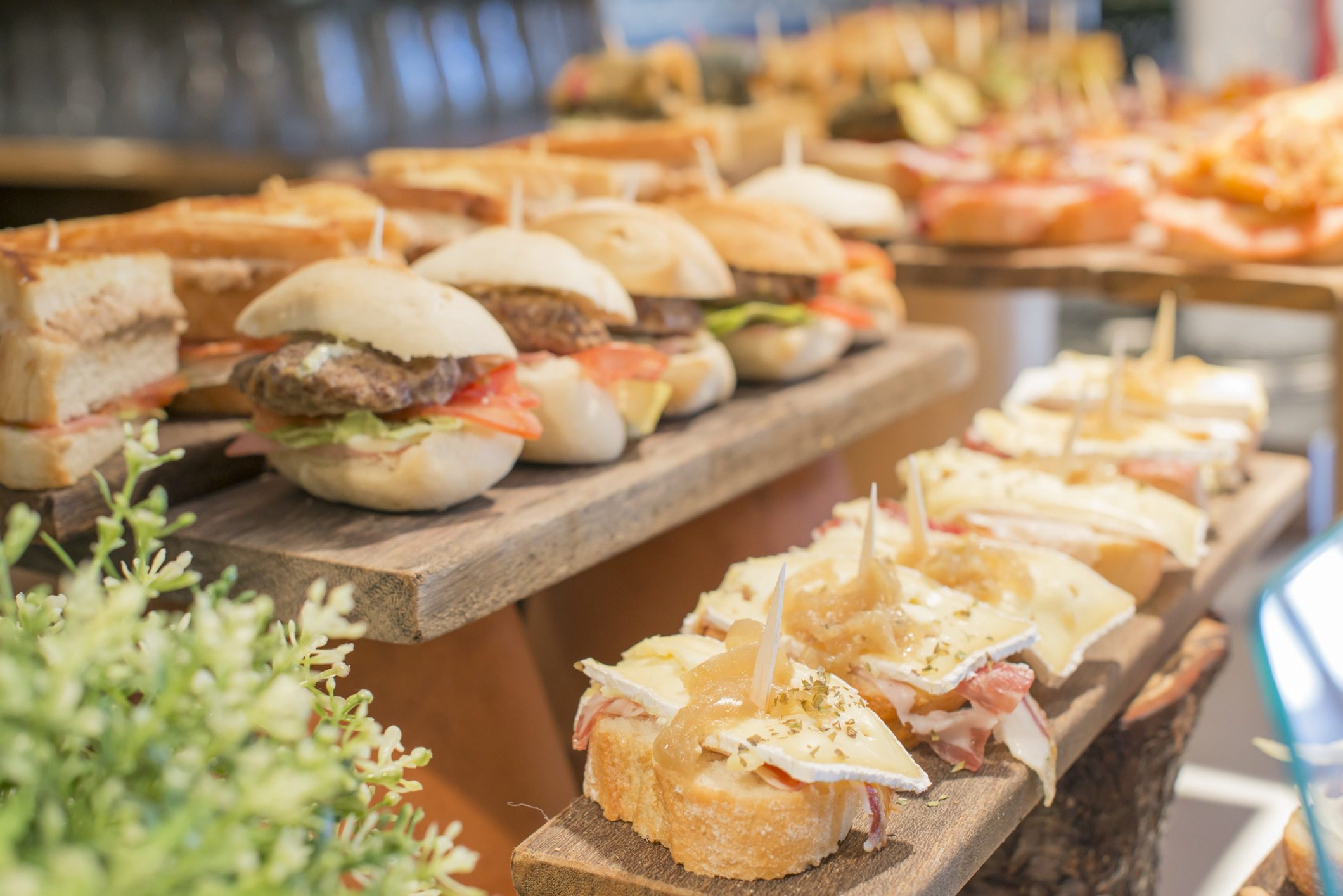
Speakers of the Basque language, a language spoken in self-governing parts of France and Spain, have a tradition of male-only nights out.
The evenings take place behind closed doors in specially rented or purpose-bought premises, often basements.
But the events, which are called txoko—from the Basque word ‘zoko,’ meaning ‘cosy nook’—are far from questionable; sweetly, they’re for the meeting of gastronomic societies, where men experiment with cuisine and socialise.
Many of the societies, which were first recorded in 1870, happily now also admit women. They are incredibly popular, with about 600 of them across the Basque-speaking regions and there’s usually long waiting lists for places.
During Franco’s dictatorship in Spain between 1939-1975, they were also one of the few places Basques could meet without state control and chat in their native tongue. The state allowed it because the constitution of txoko forbids all talk of politics. (Clearly, this was a strategic move by the canny Basques!)
As well as having an important social role, txoko have been credited with helping make Basque cuisine very good as well as very affordable.
They have also helped preserve national dishes, such as ‘gerezi beltza arno gorriakin,’ which is a soup made of pitted cherries, poached in wine and served either hot or cold—often with a dollop of cream. Yum!
Another firm Basque favourite is ‘marmitako,’ a fish and potato stew generally made with tuna, onions, pepper and tomato. This dish originated with fishermen who would take pots of cooked potatoes and garnishes out to sea with them on longer voyages and add freshly-caught fish to the mix to sustain them before they got back to land.
Perhaps the most common national dish, though, is pinxto, the name given to Basque tapas typically eaten in bars in Northern Spain.
The distinctive pinxto features bread with various toppings held together with a cocktail stick so, unsurprisingly, pinxto translates as ‘spike.’
Perhaps more surprising is the origin of the Spanish snack of tapas. According to popular stories, drinkers in Spanish taverns many centuries ago used to cover their sherry glasses with a cover or coaster called a ‘tapa’ (from the Spanish verb ‘tapar,’ ‘to cover.’) in between taking sips. This was to stop flies diving into their drinks and drowning.
In one version of the story, the drink covers were themselves edible in the form of bread or a slice of cold meat and crafty bartenders would put salty tidbits on top of them to make their customers thirsty and more likely to order more drinks.
Another version of the story claims that tapas were the invention of the 13th century Spanish King, Alfonso X, who was keen to avoid drunkenness among his subjects. (He was, fittingly, nicknamed Alfonso the Wise!) But, whichever version you go with, there’s no doubt that the snacks are tasty and that they take their name from the ‘tapa’—or, ‘tapas’ in the Spanish plural.
The origins of the Basque language—called Euskara in the Basque tongue—are not so easy to discover. The language is seen by linguists as an unsolved mystery as it’s not related to any language around it and its origins are unknown.
It is thought to pre-date the arrival of Indo-European languages—such as Latin or Greek—into Europe and it’s held in such high esteem by Basques that they have a single word to refer to any other language besides Basque: Erdera.
But although the Basque language doesn’t seem to share any common ancestor language with its neighbours, it has influenced them. There are many Basque loanwords in Spanish, including ‘agur’ (which is a way of saying ‘goodbye’ in both languages) and ‘abarca,’ which means ‘sandal’ in Spanish, from the Basque word for sandal—’abarka.’ (Interestingly, the Basque word for sandal itself derives from ‘abar,’ meaning ‘branch,’ because some sandals were originally made of wood!)
Basque has also loaned the word ‘basque’ to English as both the name of the language and its people but also as an item of women’s lingerie.
This curious twist came about because the traditional Basque women’s jacket was fitted over the waist and hips. The French historically copied this style of jacket and called it a basque, a name which was then passed onto an item of figure-hugging women’s underwear. English fashion followed suit and adopted the basque as a name for a type of fitted bodice and then underwear. Ironically, although a basque can still mean an item of lingerie in English today, it no longer can in French!
The Basque language has a wealth of history and cultural significance to explore. It is also a living language spoken by an estimated 750,000 people. But, sadly, it is now classed as vulnerable by UNESCO. You can support it by learning a few words of Basque through our app.
We suggest starting with the food ones first!